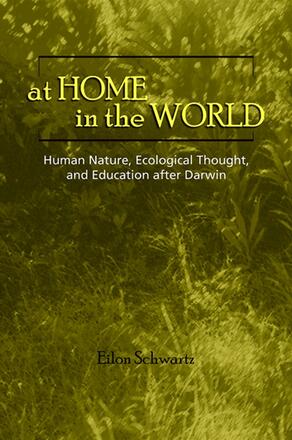
At Home in the World
Human Nature, Ecological Thought, and Education after Darwin
Alternative formats available from:
Explores how Darwin’s theory of human nature can inform educational philosophy.
Description
Challenging conventional understanding of humans as selfish and competitive at their core, At Home in the World asserts that we have evolved as a profoundly social species, biologically related to the rest of the natural world, and at home on the only planet for which we are adapted to live. Eilon Schwartz traces the history of Darwinism, examining attempts of the nineteenth and twentieth centuries to apply Darwin's theories to educational philosophy and analyzing trends since the reemergence of Darwinism toward the end of the twentieth century. Identifying with the Darwinian interpretations of Peter Kropotkin, John Dewey, and Mary Midgley, Schwartz argues for a compelling educational philosophy rooted in our best scientific understandings of human nature.
Eilon Schwartz is Lecturer at the Melton Center for Jewish Education at the Hebrew University of Jerusalem and Executive Director of the Heschel Center for Environmental Learning and Leadership in Tel Aviv.
Reviews
"…a good source for critical discussion of the debates on the relative roles of evolved human capacities and social conditioning in shaping human behavior." — CHOICE
"…a worthwhile contribution to a rising body of literature that helps to strip Darwin of the unhelpful interpretations under which his work was maligned." — Environmental Values